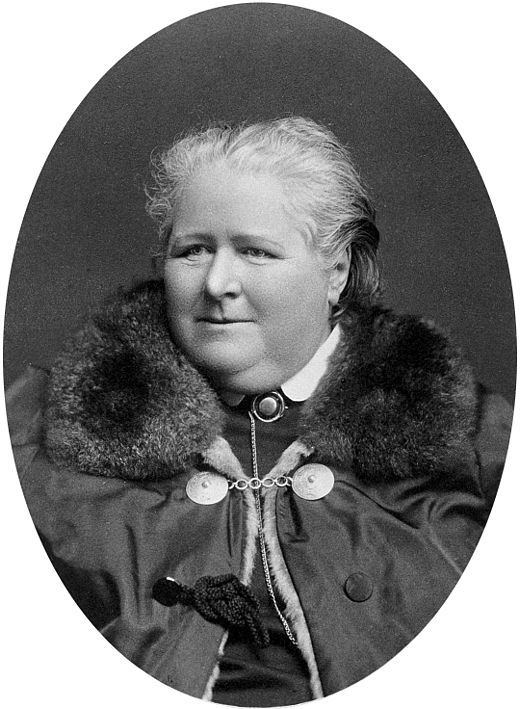2 MIN VIDEO I 3 MIN READ
Frances Power Cobbe
Fighting for Equality For Women and Animals
You may have heard the name Frances Power Cobbe, but you may not realize that she was a prolific writer. She authored An Essay on Intuitive Morals (1855), The Pursuits of Women (1863), Cities of the Past (1864), Essays New and Old on Ethical and Social Subjects (1865), Darwinism in Morals, and other Essays (1872), The Hopes of the Human Race (1874), The Duties of Women (1881), The Peak in Darien, with some other Inquiries touching concerns of the Soul and the Body (1882), The Scientific Spirit of the Age (1888) and The Modern Rack: Papers on Vivisection (1889). Additionally, she published dozens of essays in most of the leading periodicals of the time and wrote her autobiography.
According to Brooklyn Museum, “Cobbe’s article ‘Wife Torture in England’ (1878) ensured passage of a parliamentary bill that allowed for women’s legal separation from abusive husbands. ‘The part of my work for women … to which I look back with most satisfaction,’ she stated in her autobiography, ‘was that in which I labored to obtain protection for unhappy wives, beaten, mangled, mutilated or trampled on by brutal husbands’ (Cobbe, Life, p. 592)”.

In her rare spare time, Frances founded the Society for the Protection of Animals Liable to Vivisection (SPALV) in 1875, the world’s first organization campaigning against animal experiments, and in 1898 the British Union for the Abolition of Vivisection (BUAV), two groups that remain active. She was a member of the executive council of the London National Society for Women’s Suffrage and writer of editorial columns for London newspapers on suffrage, property rights for women and opposition to vivisection. Around 1880, with Louise Twining, she founded Homes for Workhouse Girls.

canine companion and traveled
with her and her partner,
Mary Lloyd, to Wales after
Cobbe and Lloyd moved there
Frances was in a lesbian relationship with Welsh sculptor Mary Lloyd from 1819 to 1894. Upon Mary’s death, Frances’ friend, writer Blanche Atkinson, wrote, “The sorrow of Miss Lloyd’s death changed the whole aspect of existence for Miss Cobbe. The joy of life had gone. It had been such a friendship as is rarely seen – perfect in love, sympathy, and mutual understand.”

John Gibson in Rome and Frances’s lover